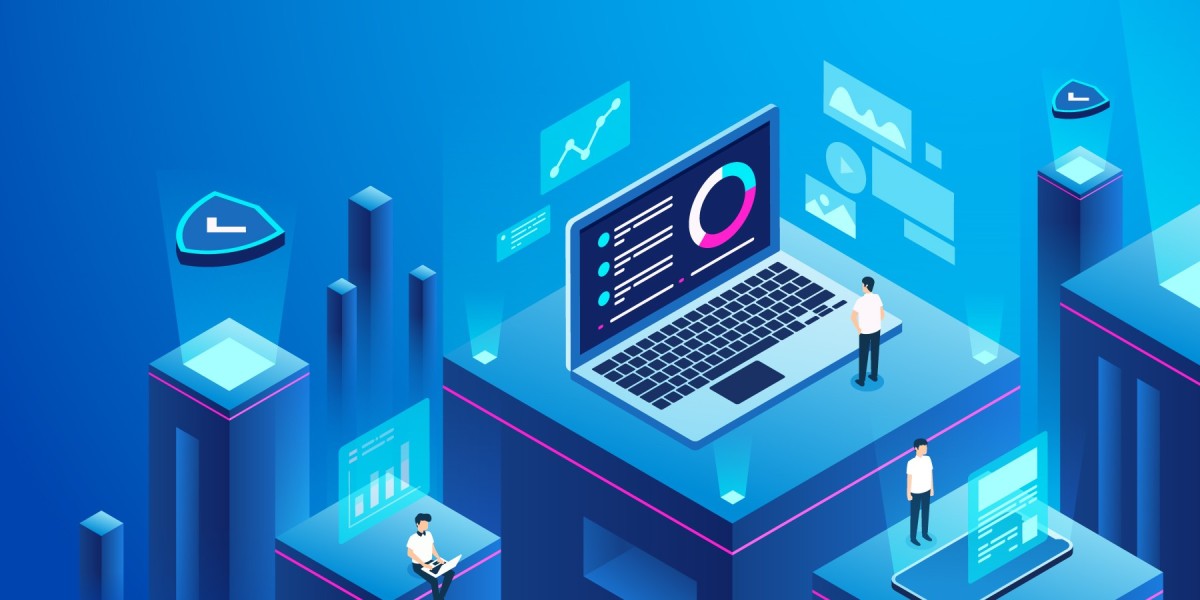The digital revolution has paved the way for innovative transformations in the field of education. The integration of artificial intelligence (AI) into customized software for education is revolutionizing the way students learn and educators teach. AI-driven innovations are empowering tailored learning solutions that cater to individual student needs, enhance engagement, and optimize educational outcomes. In this blog, we will explore how AI-driven innovations in customized software for education are reshaping the learning landscape, with a focus on personalized learning, data-driven insights, and the future of AI in education.
I. The Evolution of Customized Software for Education
A. Personalization and Customization: Customized software solutions in education have evolved to offer personalized learning experiences, accommodating diverse learning styles and preferences.
B. Shift to AI-driven Innovations: AI-powered algorithms and machine learning have become integral to customized software, enabling data analysis, adaptive learning, and intelligent tutoring.
II. The Rise of Personalized Learning
A. Adaptive Learning Platforms
Individualized Learning Paths: AI algorithms analyze student data to create personalized learning paths, tailoring content delivery and pacing to match each student's learning needs.
Real-time Feedback: Adaptive learning platforms provide instant feedback to students, identifying areas for improvement and promoting self-directed learning.
B. Intelligent Tutoring Systems
Virtual Tutors: AI-driven tutoring systems offer one-on-one support to students, guiding them through challenging concepts and adapting to their progress in real-time.
Personalized Learning Recommendations: Intelligent tutoring systems recommend appropriate learning resources and activities based on individual strengths and weaknesses.
C. Gamification and Personalized Engagement
Gamified Learning Experiences: AI-powered gamification enhances student engagement, motivation, and participation, transforming learning into an enjoyable and interactive process.
Personalized Challenges and Rewards: Gamified learning adapts difficulty levels and rewards to match each student's performance, encouraging a sense of achievement and progression.
III. Empowering Educators with Data-Driven Insights
A. AI-driven Assessment and Grading
Automated Grading: AI algorithms automate the grading process for various types of assessments, enabling educators to focus more on instructional strategies and student support.
Performance Analytics: AI-powered assessment tools provide educators with detailed insights into student performance, allowing for targeted interventions and tailored support.
B. Learning Analytics and Progress Tracking
Data-Driven Decision-Making: AI analytics process large datasets to identify trends and patterns, informing educators about instructional efficacy and areas of improvement.
Individual Progress Monitoring: AI-driven software enables educators to track individual student progress and identify learning gaps for targeted remediation.
C. Intelligent Content Curation
Personalized Resource Recommendations: AI-powered content curation tools suggest relevant learning materials and resources based on each student's interests and learning history.
Curating Open Educational Resources (OER): AI-driven software expands access to high-quality OER, enhancing the diversity of learning content available to educators.
IV. Ensuring Ethical AI in Education
A. Data Privacy and Security: Ethical considerations demand that customized software providers prioritize data privacy and security, safeguarding student information and adhering to relevant regulations.
B. Algorithmic Bias: Continuous monitoring and refinement of AI algorithms are essential to mitigate biases and ensure equitable learning experiences for all students.
C. Responsible Use of Student Data: Customized software providers should adhere to ethical guidelines to ensure that student data is used responsibly and solely for educational purposes.
V. The Future of AI in Education
A. Advancements in Natural Language Processing: AI-driven innovations will facilitate more sophisticated interactions between students and virtual tutors, enabling seamless and human-like communication.
B. AI in Educational Research: AI technologies will play a significant role in educational research, generating valuable insights and contributing to evidence-based educational practices.
C. Lifelong Learning and Upskilling: AI-powered customized software will support lifelong learning and professional development, empowering learners to acquire new skills and adapt to evolving job markets.
VI. Embracing the Potential of AI in Education
A. Integrating AI into Curriculum Design: Educators and curriculum designers can collaborate with customized software providers to integrate AI-powered tools seamlessly into lesson planning and course content.
B. Empowering Educators as AI Mentors: AI-driven innovations can assist educators in becoming effective AI mentors, guiding students in their personalized learning journeys.
C. Fostering a Culture of Innovation: Educational institutions can cultivate a culture of innovation by encouraging faculty and students to embrace AI technologies and explore their potential in education.
Conclusion: Unlocking the Full Potential of AI in Education
AI-driven innovations in customized software for education are ushering in a new era of personalized and data-driven learning experiences. From adaptive learning platforms to intelligent tutoring systems and beyond, AI is reshaping education by catering to individual learning needs, empowering educators with valuable insights, and enhancing student engagement and success. As the field of AI continues to advance, the future of education will be defined by inclusive and equitable learning opportunities that foster lifelong learning and prepare students for success in a rapidly changing world. By embracing the potential of AI in education and collaborating with customized software providers, educational institutions can unlock the full transformative power of AI to empower students and educators on their learning journeys.








